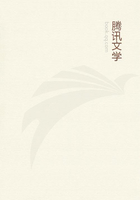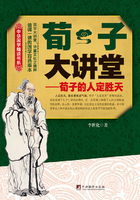Antoine Macquart had returned to Plassans after the fall of the first Napoleon. He had had the incredible good fortune to escape all the final murderous campaigns of the Empire. He had moved from barracks to barracks, dragging on his brutifying military life. This mode of existence brought his natural vices to full development. His idleness became deliberate; his intemperance, which brought him countless punishments, became, to his mind, a veritable religious duty. But that which above all made him the worst of scapegraces was the supercilious disdain which he entertained for the poor devils who had to earn their bread.
"I've got money waiting for me at home," he often said to his comrades; "when I've served my time, I shall be able to live like a gentleman."
This belief, together with his stupid ignorance, prevented him from rising even to the grade of corporal.
Since his departure he had never spent a day's furlough at Plassans, his brother having invented a thousand pretexts to keep him at a distance. He was therefore completely ignorant of the adroit manner in which Pierre had got possession of their mother's fortune. Adelaide, with her profound indifference, did not even write to him three times to tell him how she was going on. The silence which generally greeted his numerous requests for money did not awaken the least suspicion in him; Pierre's stinginess sufficed to explain the difficulty he experienced in securing from time to time a paltry twenty-franc piece. This, however, only increased his animosity towards his brother, who left him to languish in military service in spite of his formal promise to purchase his discharge. He vowed to himself that on his return home he would no longer submit like a child, but would flatly demand his share of the fortune to enable him to live as he pleased. In the diligence which conveyed him home he dreamed of a delightful life of idleness. The shattering of his castles in the air was terrible. When he reached the Faubourg, and could no longer even recognise the Fouques' plot of ground, he was stupefied. He was compelled to ask for his mother's new address. There a terrible scene occurred. Adelaide calmly informed him of the sale of the property. He flew into a rage, and even raised his hand against her.
The poor woman kept repeating: "Your brother has taken everything; it is understood that he will take care of you."
At last he left her and ran off to see Pierre, whom he had previously informed of his return, and who was prepared to receive him in such a way as to put an end to the matter at the first word of abuse.
"Listen," the oil-dealer said to him, affecting distant coldness; "don't rouse my anger, or I'll turn you out. As a matter of fact, I don't know you. We don't bear the same name. It's quite misfortune enough for me that my mother misconducted herself, without having her offspring coming here and insulting me. I was well disposed towards you, but since you are insolent I shall do nothing for you, absolutely nothing."
Antoine was almost choking with rage.
"And what about my money," he cried; "will you give it up, you thief, or shall I have to drag you before the judges?"
Pierre shrugged his shoulders.
"I've got no money of yours," he replied, more calmly than ever. "My mother disposed of her fortune as she thought proper. I am certainly not going to poke my nose into her business. I willingly renounced all hope of inheritance. I am quite safe from your foul accusations."
And as his brother, exasperated by this composure, and not knowing what to think, muttered something, Pierre thrust Adelaide's receipt under his nose. The reading of this scrap of paper completed Antoine's dismay.
"Very well," he said, in a calmer voice, "I know now what I have to do."
The truth was, however, he did not know what to do. His inability to hit upon any immediate expedient for obtaining his share of the money and satisfying his desire of revenge increased his fury. He went back to his mother and subjected her to a disgraceful cross-examination. The wretched woman could do nothing but again refer him to Pierre.
"Do you think you are going to make me run to and fro like a shuttle?" he cried, insolently. "I'll soon find out which of you two has the hoard. You've already squandered it, perhaps?"
And making an allusion to her former misconduct he asked her if there were still not some low fellow to whom she gave her last sous? He did not even spare his father, that drunkard Macquart, as he called him, who must have lived on her till the day of his death, and who left his children in poverty. The poor woman listened with a stupefied air; big tears rolled down her cheeks. She defended herself with the terror of a child, replying to her son's questions as though he were a judge; she swore that she was living respectably, and reiterated with emphasis that she had never had a sou of the money, that Pierre had taken everything. Antoine almost came to believe it at last.
"Ah! the scoundrel!" he muttered; "that's why he wouldn't purchase my discharge."
He had to sleep at his mother's house, on a straw mattress flung in a corner. He had returned with his pockets perfectly empty, and was exasperated at finding himself destitute of resources, abandoned like a dog in the streets, without hearth or home, while his brother, as he thought, was in a good way of business, and living on the fat of the land. As he had no money to buy clothes with, he went out on the following day in his regimental cap and trousers. He had the good fortune to find, at the bottom of a cupboard, an old yellowish velveteen jacket, threadbare and patched, which had belonged to Macquart. In this strange attire he walked about the town, relating his story to everyone, and demanding justice.
The people whom he went to consult received him with a contempt which made him shed tears of rage. Provincial folks are inexorable towards fallen families. In the general opinion it was only natural that the Rougon-Macquarts should seek to devour each other; the spectators, instead of separating them, were more inclined to urge them on. Pierre, however, was at that time already beginning to purify himself of his early stains. People laughed at his roguery; some even went so far as to say that he had done quite right, if he really had taken possession of the money, and that it would be a good lesson to the dissolute folks of the town.
Antoine returned home discouraged. A lawyer had advised him, in a scornful manner, to wash his dirty linen at home, though not until he had skilfully ascertained whether Antoine possessed the requisite means to carry on a lawsuit. According to this man, the case was very involved, the pleadings would be very lengthy, and success was doubtful. Moreover, it would require money, and plenty of it.
Antoine treated his mother yet more harshly that evening. Not knowing on whom else to wreak his vengeance, he repeated his accusation of the previous day; he kept the wretched woman up till midnight, trembling with shame and fright. Adelaide having informed him that Pierre made her an allowance, he now felt certain that his brother had pocketed the fifty thousand francs. But, in his irritation, he still affected to doubt it, and did not cease to question the poor woman, again and again reproaching her with misconduct.
Antoine soon found out that, alone and without resources, he could not successfully carry on a contest with his brother. He then endeavoured to gain Adelaide to his cause; an accusation lodged by her might have serious consequences. But, at Antoine's first suggestion of it, the poor, lazy, lethargic creature firmly refused to bring trouble on her eldest son.
"I am an unhappy woman," she stammered; "it is quite right of you to get angry. But I should feel too much remorse if I caused one of my sons to be sent to prison. No; I'd rather let you beat me."
He saw that he would get nothing but tears out of her, and contented himself with saying that she was justly punished, and that he had no pity for her. In the evening, upset by the continual quarrels which her son had sought with her, Adelaide had one of those nervous attacks which kept her as rigid as if she had been dead. The young man threw her on her bed, and then began to rummage the house to see if the wretched woman had any savings hidden away. He found about forty francs. He took possession of them, and, while his mother still lay there, rigid and scarce able to breathe, he quietly took the diligence to Marseilles.
He had just bethought himself that Mouret, the journeyman hatter who had married his sister Ursule, must be indignant at Pierre's roguery, and would no doubt be willing to defend his wife's interests. But he did not find in him the man he expected. Mouret plainly told him that he had become accustomed to look upon Ursule as an orphan, and would have no contentions with her family at any price. Their affairs were prospering. Antoine was received so coldly that he hastened to take the diligence home again. But, before leaving, he was anxious to revenge himself for the secret contempt which he read in the workman's eyes; and, observing that his sister appeared rather pale and dejected, he said to her husband, in a slyly cruel way, as he took his departure: "Have a care, my sister was always sickly, and I find her much changed for the worse; you may lose her altogether."
The tears which rushed to Mouret's eyes convinced him that he had touched a sore wound. But then those work-people made too great a display of their happiness.
When he was back again in Plassans, Antoine became the more menacing from the conviction that his hands were tied. During a whole month he was seen all over the place. He paraded the streets, recounting his story to all who would listen to him. Whenever he succeeded in extorting a franc from his mother, he would drink it away at some tavern, where he would revile his brother, declaring that the rascal should shortly hear from him. In places like these, the good-natured fraternity which reigns among drunkards procured him a sympathetic audience; all the scum of the town espoused his cause, and poured forth bitter imprecations against that rascal Rougon, who left a brave soldier to starve; the discussion generally terminating with an indiscriminate condemnation of the rich. Antoine, the better to revenge himself, continued to march about in his regimental cap and trousers and his old yellow velvet jacket, although his mother had offered to purchase some more becoming clothes for him. But no; he preferred to make a display of his rags, and paraded them on Sundays in the most frequented parts of the Cours Sauvaire.
One of his most exquisite pleasures was to pass Pierre's shop ten times a day. He would enlarge the holes in his jacket with his fingers, slacken his step, and sometimes stand talking in front of the door, so as to remain longer in the street. On these occasions, too, he would bring one of his drunken friends and gossip to him; telling him about the theft of the fifty thousand francs, accompanying his narrative with loud insults and menaces, which could be heard by everyone in the street, and taking particular care that his abuse should reach the furthest end of the shop.
"He'll finish by coming to beg in front of our house," Felicite used to say in despair.
The vain little woman suffered terribly from this scandal. She even at this time felt some regret at ever having married Rougon; his family connections were so objectionable. She would have given all she had in the world to prevent Antoine from parading his rags. But Pierre, who was maddened by his brother's conduct, would not allow his name to be mentioned. When his wife tried to convince him that it would perhaps be better to free himself from all annoyance by giving Antoine a little money: "No, nothing; not a sou," he cried with rage. "Let him starve!"
He confessed, however, at last that Antoine's demeanour was becoming intolerable. One day, Felicite, desiring to put an end to it, called to "that man," as she styled him with a disdainful curl on her lip. "That man" was in the act of calling her a foul name in the middle of the street, where he stood with one of his friends, even more ragged than himself. They were both drunk.
"Come, they want us in there," said Antoine to his companion in a jeering tone.
But Felicite drew back, muttering: "It's you alone we wish to speak to."
"Bah!" the young man replied, "my friend's a decent fellow. You needn't mind him hearing. He'll be my witness."
The witness sank heavily on a chair. He did not take off his hat, but began to stare around him, with the maudlin, stupid grin of drunkards and coarse people who know that they are insolent. Felicite was so ashamed that she stood in front of the shop door in order that people outside might not see what strange company she was receiving. Fortunately her husband came to the rescue. A violent quarrel ensued between him and his brother. The latter, after stammering insults, reiterated his old grievances twenty times over. At last he even began to cry, and his companion was near following his example. Pierre had defended himself in a very dignified manner.
"Look here," he said at last, "you're unfortunate, and I pity you. Although you have cruelly insulted me, I can't forget that we are children of the same mother. If I give you anything, however, you must understand I give it you out of kindness, and not from fear. Would you like a hundred francs to help you out of your difficulties?"
This abrupt offer of a hundred francs dazzled Antoine's companion. He looked at the other with an air of delight, which clearly signified: "As the gentleman offers a hundred francs, it is time to leave off abusing him." But Antoine was determined to speculate on his brother's favourable disposition. He asked him whether he took him for a fool; it was his share, ten thousand francs, that he wanted.
"You're wrong, you're wrong," stuttered his friend.
At last, as Pierre, losing all patience, was threatening to turn them both out, Antoine lowered his demands and contented himself with claiming one thousand francs. They quarrelled for another quarter of an hour over this amount. Finally, Felicite interfered. A crowd was gathering round the shop.
"Listen," she said, excitedly; "my husband will give you two hundred francs. I'll undertake to buy you a suit of clothes, and hire a room for a year for you."
Rougon got angry at this. But Antoine's comrade cried, with transports of delight: "All right, it's settled, then; my friend accepts."
Antoine did, in fact, declare, in a surly way, that he would accept. He felt he would not be able to get any more. It was arranged that the money and clothes should be sent to him on the following day, and that a few days later, as soon as Felicite should have found a room for him, he would take up his quarters there. As they were leaving, the young man's sottish companion became as respectful as he had previously been insolent. He bowed to the company more than a dozen times, in an awkward and humble manner, muttering many indistinct thanks, as if the Rougons' gifts had been intended for himself.
A week later Antoine occupied a large room in the old quarter, in which Felicite, exceeding her promises, had placed a bed, a table, and some chairs, on the young man formally undertaking not to molest them in future. Adelaide felt no regret at her son leaving her; the short stay he had made with her had condemned her to bread and water for more than three months. However, Antoine had soon eaten and drunk the two hundred francs he received from Pierre. He never for a moment thought of investing them in some little business which would have helped him to live. When he was again penniless, having no trade, and being, moreover, unwilling to work, he again sought to slip a hand into the Rougons' purse. Circumstances were not the same as before, however, and he failed to intimidate them. Pierre even took advantage of this opportunity to turn him out, and forbade him ever to set foot in his house again. It was of no avail for Antoine to repeat his former accusations. The townspeople, who were acquainted with his brother's munificence from the publicity which Felicite had given to it, declared him to be in the wrong, and called him a lazy, idle fellow. Meantime his hunger was pressing. He threatened to turn smuggler like his father, and perpetrate some crime which would dishonour his family. At this the Rougons shrugged their shoulders; they knew he was too much of a coward to risk his neck. At last, blindly enraged against his relatives in particular and society in general, Antoine made up his mind to seek some work.
In a tavern of the Faubourg he made the acquaintance of a basket-maker who worked at home. He offered to help him. In a short time he learnt to plait baskets and hampers—a coarse and poorly-paid kind of labour which finds a ready market. He was very soon able to work on his own account. This trade pleased him, as it was not over laborious. He could still indulge his idleness, and that was what he chiefly cared for. He would only take to his work when he could no longer do otherwise; then he would hurriedly plait a dozen baskets and go and sell them in the market. As long as the money lasted he lounged about, visiting all the taverns and digesting his drink in the sunshine. Then, when he had fasted a whole day, he would once more take up his osier with a low growl and revile the wealthy who lived in idleness. The trade of a basket-maker, when followed in such a manner, is a thankless one. Antoine's work would not have sufficed to pay for his drinking bouts if he had not contrived a means of procuring his osier at low cost. He never bought any at Plassans, but used to say that he went each month to purchase a stock at a neighbouring town, where he pretended it was sold cheaper. The truth, however, was that he supplied himself from the osier-grounds of the Viorne on dark nights. A rural policeman even caught him once in the very act, and Antoine underwent a few days' imprisonment in consequence. It was from that time forward that he posed in the town as a fierce Republican. He declared that he had been quietly smoking his pipe by the riverside when the rural policeman arrested him. And he added: "They would like to get me out of the way because they know what my opinions are. But I'm not afraid of them, those rich scoundrels."
At last, at the end of ten years of idleness, Antoine considered that he had been working too hard. His constant dream was to devise some expedient by which he might live at his ease without having to do anything. His idleness would never have rested content with bread and water; he was not like certain lazy persons who are willing to put up with hunger provided they can keep their hands in their pockets. He liked good feeding and nothing to do. He talked at one time of taking a situation as servant in some nobleman's house in the Saint-Marc quarter. But one of his friends, a groom, frightened him by describing the exacting ways of his masters. Finally Macquart, sick of his baskets, and seeing the time approach when he would be compelled to purchase the requisite osier, was on the point of selling himself as an army substitute and resuming his military life, which he preferred a thousand times to that of an artisan, when he made the acquaintance of a woman, an acquaintance which modified his plans.
Josephine Gavaudan, who was known throughout the town by the familiar diminutive of Fine, was a tall, strapping wench of about thirty. With a square face of masculine proportions, and a few terribly long hairs about her chin and lips, she was cited as a doughty woman, one who could make the weight of her fist felt. Her broad shoulders and huge arms consequently inspired the town urchins with marvellous respect; and they did not even dare to smile at her moustache. Notwithstanding all this, Fine had a faint voice, weak and clear like that of a child. Those who were acquainted with her asserted that she was as gentle as a lamb, in spite of her formidable appearance. As she was very hard-working, she might have put some money aside if she had not had a partiality for liqueurs. She adored aniseed, and very often had to be carried home on Sunday evenings.
On week days she would toil with the stubbornness of an animal. She had three or four different occupations; she sold fruit or boiled chestnuts in the market, according to the season; went out charring for a few well-to-do people; washed up plates and dishes at houses when parties were given, and employed her spare time in mending old chairs. She was more particularly known in the town as a chair-mender. In the South large numbers of straw-bottomed chairs are used.
Antoine Macquart formed an acquaintance with Fine at the market. When he went to sell his baskets in the winter he would stand beside the stove on which she cooled her chestnuts and warm himself. He was astonished at her courage, he who was frightened of the least work. By degrees he discerned, beneath the apparent roughness of this strapping creature, signs of timidity and kindliness. He frequently saw her give handfuls of chestnuts to the ragged urchins who stood in ecstasy round her smoking pot. At other times, when the market inspector hustled her, she very nearly began to cry, apparently forgetting all about her heavy fists. Antoine at last decided that she was exactly the woman he wanted. She would work for both and he would lay down the law at home. She would be his beast of burden, an obedient, indefatigable animal. As for her partiality for liqueurs, he regarded this as quite natural. After well weighing the advantages of such an union, he declared himself to Fine, who was delighted with his proposal. No man had ever yet ventured to propose to her. Though she was told that Antoine was the most worthless of vagabonds, she lacked the courage to refuse matrimony. The very evening of the nuptials the young man took up his abode in his wife's lodgings in the Rue Civadiere, near the market. These lodgings, consisting of three rooms, were much more comfortably furnished than his own, and he gave a sigh of satisfaction as he stretched himself out on the two excellent mattresses which covered the bedstead.
Everything went on very well for the first few days. Fine attended to her various occupations as in the past; Antoine, seized with a sort of marital self-pride which astonished even himself, plaited in one week more baskets than he had ever before done in a month. On the first Sunday, however, war broke out. The couple had a goodly sum of money in the house, and they spent it freely. During the night, when they were both drunk, they beat each other outrageously, without being able to remember on the morrow how it was that the quarrel had commenced. They had remained on most affectionate terms until about ten o'clock, when Antoine had begun to beat Fine brutally, whereupon the latter, growing exasperated and forgetting her meekness, had given him back as much as she received. She went to work again bravely on the following day, as though nothing had happened. But her husband, with sullen rancour, rose late and passed the remainder of the day smoking his pipe in the sunshine.
From that time forward the Macquarts adopted the kind of life which they were destined to lead in the future. It became, as it were, tacitly understood between them that the wife should toil and moil to keep her husband. Fine, who had an instinctive liking for work, did not object to this. She was as patient as a saint, provided she had had no drink, thought it quite natural that her husband should remain idle, and even strove to spare him the most trifling labour. Her little weakness, aniseed, did not make her vicious, but just. On the evenings when she had forgotten herself in the company of a bottle of her favourite liqueur, if Antoine tried to pick a quarrel with her, she would set upon him with might and main, reproaching him with his idleness and ingratitude. The neighbours grew accustomed to the disturbances which periodically broke out in the couple's room. The two battered each other conscientiously; the wife slapped like a mother chastising a naughty child; but the husband, treacherous and spiteful as he was, measured his blows, and, on several occasions, very nearly crippled the unfortunate woman.
"You'll be in a fine plight when you've broken one of my arms or legs," she would say to him. "Who'll keep you then, you lazy fellow?"
Excepting for these turbulent scenes, Antoine began to find his new mode of existence quite endurable. He was well clothed, and ate and drank his fill. He had laid aside the basket work altogether; sometimes, when he was feeling over-bored, he would resolve to plait a dozen baskets for the next market day; but very often he did not even finish the first one. He kept, under a couch, a bundle of osier which he did not use up in twenty years.
The Macquarts had three children, two girls and a boy. Lisa,[1] born the first, in 1827, one year after the marriage, remained but little at home. She was a fine, big, healthy, full-blooded child, greatly resembling her mother. She did not, however, inherit the latter's animal devotion and endurance. Macquart had implanted in her a most decided longing for ease and comfort. While she was a child she would consent to work for a whole day in return for a cake. When she was scarcely seven years old, the wife of the postmaster, who was a neighbour of the Macquarts, took a liking to her. She made a little maid of her. And when she lost her husband in 1839, and went to live in Paris, she took Lisa with her. The parents had almost given her their daughter.
The second girl, Gervaise,[2] born the following year, was a cripple from birth. Her right thigh was smaller than the left and showed signs of curvature, a curious hereditary result of the brutality which her mother had to endure during her fierce drunken brawls with Macquart. Gervaise remained puny, and Fine, observing her pallor and weakness, put her on a course of aniseed, under the pretext that she required something to strengthen her. But the poor child became still more emaciated. She was a tall, lank girl, whose frocks, invariably too large, hung round her as if they had nothing under them. Above a deformed and puny body she had a sweet little doll-like head, a tiny round face, pale and exquisitely delicate. Her infirmity almost became graceful. Her body swayed gently at every step with a sort of rhythmical swing.
The Macquarts' son, Jean,[3] was born three years later. He was a robust child, in no respect recalling Gervaise. Like the eldest girl, he took after his mother, without having any physical resemblance to her. He was the first to import into the Rougon-Macquart stock a fat face with regular features, which showed all the coldness of a grave yet not over-intelligent nature. This boy grew up with the determination of some day making an independent position for himself. He attended school diligently, and tortured his dull brain to force a little arithmetic and spelling into it. After that he became an apprentice, repeating much the same efforts with a perseverance that was the more meritorious as it took him a whole day to learn what others acquired in an hour.
As long as these poor little things remained a burden to the house, Antoine grumbled. They were useless mouths that lessened his own share. He vowed, like his brother, that he would have no more children, those greedy creatures who bring their parents to penury. It was something to hear him bemoan his lot when they sat five at table, and the mother gave the best morsels to Jean, Lisa, and Gervaise.
"That's right," he would growl; "stuff them, make them burst!"















